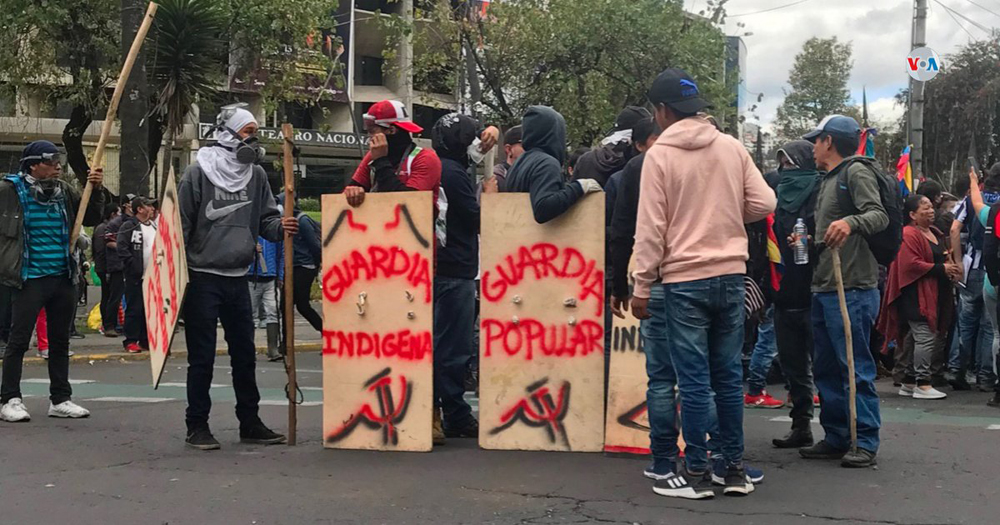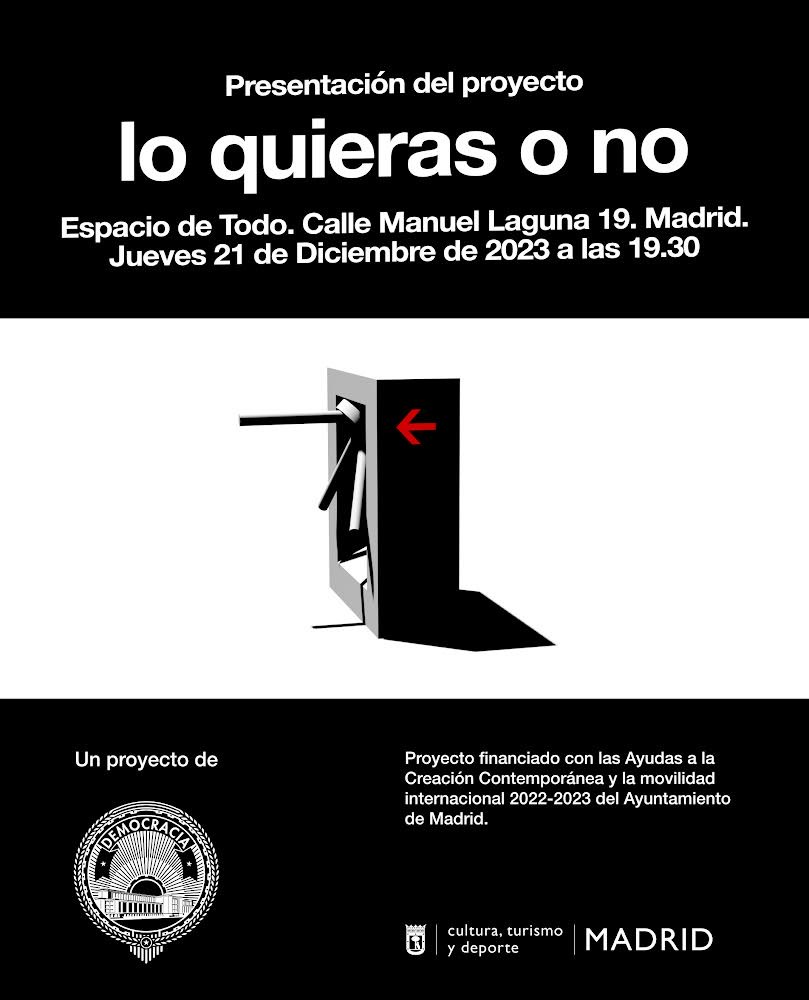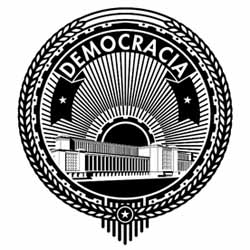︎︎︎"WHETHER YOU WANT IT OR NOT”
Democracia Collective
november 2023 to february 2024
After a year of research, the DEMOCRACIA* collective began a residency in November to evaluate the results of the project "Lo quieras o no" (Whether you want it or not), shown in December at Espacio de Todo.
Based on an interest in the modes, techniques and channels of propaganda, a collaborative project has been developed with a series of cultural workers, and musicians, whose performance space is the carriages of the Madrid metro. In general, the repertoire of the metro musicians tends to focus on well-known popular themes, or fashionable mainstream compositions, seeking to please as many passengers as possible, to ensure an economic return, thus reproducing on their scale the purpose of the culture industry and mass culture as techniques of social stability, appeasement and conformity, as understood by critical theory.


Through a process of dialogue and negotiation with the musicians, we have intervened in their usual repertoire with the intention of introducing certain themes of a social or political nature, confrontational or underground, specifically selected, either because of their own life experiences, their cultural or ideological background, or because of their suitability to their style and musical interests, which would cause a disruption in the cultural grammar of what travellers expect from these performances.

"Whether you like it or not" alludes to a captive audience, the traveller who cannot escape the musician's performance during this transit. A user of the Madrid City Council's citizen participation portal (that online tool that opens up the possibility of voting in citizen consultations, proposing participatory budget projects or deciding on municipal regulations) explained it in his proposed ordinance, entitled "Prohibition of begging with music inside metro carriages", as follows: "The "musicians" who come in to beg, often with amplifiers and microphones, are a nuisance from which it is difficult, if not impossible to escape." These precarious cultural workers are beggars in the eyes of this citizen, but they are also beggars in the eyes of municipal regulations, because if they are sanctioned, it is under the heading of "begging", which is regulated by the Ordinance of 16 July 1948, which prohibits begging in any form and in any place. In other words, it is already prohibited, and what this citizen may be looking for is a strict application of the regulations, that it does not happen, that it is eradicated.


"Whether you want it or not" also refers to the need to use public transport, to commute to work, to the need to participate in paid work. A public transport driver once defined his job as transporting people from places where they don't want to live to places where they don't want to work. If, as the Institute for Precarious Counciousness argues, anxiety is the dominant affect of capitalism today, it is because of its link to precarity. "Precarity is a kind of insecurity that treats people as disposable in order to impose control. Precarity differs from destitution in that the necessities of life are not simply absent. They are available, but conditionally withheld" (1) and in this both the commuter and the underground worker are linked, and in the selection of the themes to be performed, this situation has been reflected in a majority of songs related to both work and resistance to work and alienation.
The rest come from the workers' own conditions: economic migrations, a central theme here due to the origin of many of the collaborators, who bring the testimony of their own struggles to the Madrid underground, evoking mestizaje and internationalism; the popular memory of the political history of the city and the country and the rejection of authoritarianism, typical of the subaltern classes, with libertarian roots. An imaginary that unfolds before this captive audience of working men and women who move through the bowels of the city under the imperatives of the flows of capitalism, with a new social demand added: that of always being connected. (2)
(1) "We are all very anxious. Six theses on anxiety". Institute for Precarious Consciusness. (Retrieved from es.theanarchistlibrary.org/library/institute-for-precarious-consciousness-todos-estamos-muy-ansiosos).
(2) "Communication is more ubiquitous than ever, but increasingly, communication occurs only through avenues arbitrated by the system. Thus, in many ways, people are effectively prevented from communicating" Ibid.
**Project carried out with the support of the Madrid City Council's Contemporary Creation Grants programme.The rest come from the workers' own conditions: economic migrations, a central theme here due to the origin of many of the collaborators, who bring the testimony of their own struggles to the Madrid underground, evoking mestizaje and internationalism; the popular memory of the political history of the city and the country and the rejection of authoritarianism, typical of the subaltern classes, with libertarian roots. An imaginary that unfolds before this captive audience of working men and women who move through the bowels of the city under the imperatives of the flows of capitalism, with a new social demand added: that of always being connected. (2)
(1) "We are all very anxious. Six theses on anxiety". Institute for Precarious Consciusness. (Retrieved from es.theanarchistlibrary.org/library/institute-for-precarious-consciousness-todos-estamos-muy-ansiosos).
(2) "Communication is more ubiquitous than ever, but increasingly, communication occurs only through avenues arbitrated by the system. Thus, in many ways, people are effectively prevented from communicating" Ibid.

On 21 December, the presentation of the project was held, as well as the presentation of the website that contains it:
https://loquierasono.democracia.com.es/
![]()
*DEMOCRACIA
Work team formed in Madrid in 2006.
The practice of Democracy starts from the discussion and confrontation of ideas and forms of action. The very fact of working in a group establishes an interest in intervention in the social sphere.
Democracia works as a node of interests grouped temporarily for the development of the same objective, which is approached from different perspectives: those of each of the participants in the project, these being both the different agents and producers that make up Democracia (permanent and occasional) and specific communities with which collaboration is established.
Democracia also works in publishing (they are directors of the magazine Nolens Volens) and curating (No Futuro, Madrid Abierto 2008, Creador de Dueños, Arte Útil). They were founders and members of the collective El Perro (1989-2006).

*DEMOCRACIA
Work team formed in Madrid in 2006.
The practice of Democracy starts from the discussion and confrontation of ideas and forms of action. The very fact of working in a group establishes an interest in intervention in the social sphere.
Democracia works as a node of interests grouped temporarily for the development of the same objective, which is approached from different perspectives: those of each of the participants in the project, these being both the different agents and producers that make up Democracia (permanent and occasional) and specific communities with which collaboration is established.
Democracia also works in publishing (they are directors of the magazine Nolens Volens) and curating (No Futuro, Madrid Abierto 2008, Creador de Dueños, Arte Útil). They were founders and members of the collective El Perro (1989-2006).